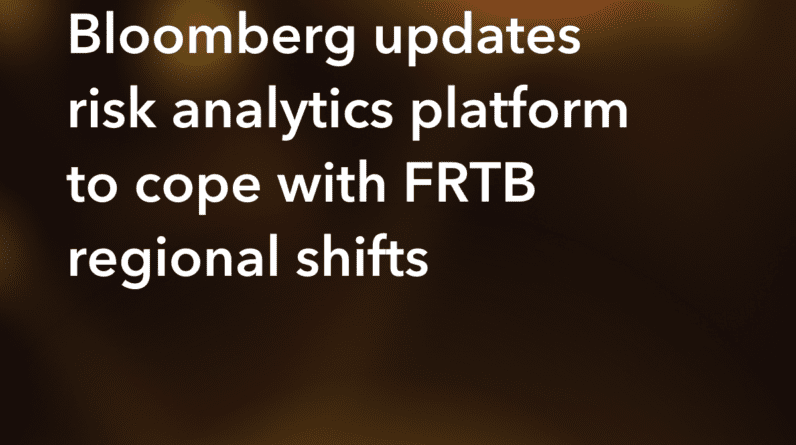
“Our FRTB solution started with an implementation of the original Basel III specifications, but the more client use cases you see, and the more we see different regulators finalizing their own jurisdictional variations of Basel III, our primary focus for this year’s roadmap is to allow our clients more flexibility,” Bala Gadiyaram says.
FRTB mandates that banks calculate capital requirements for their trading books using internal models or a standardized approach set by their regulator. Still, the implementation speed has not remained steady across the world. Canada recently became the first region in the West to implement FRTB in January, while the EU is banking on a January 2025 start date. The US announced last year its plans to implement FRTB in July 2025.
Because MARS customers operate across a wide range of jurisdictions, Bloomberg has made changes to its existing model to account for regional discrepancies.
“A lot of the jurisdictions that have Basel III reporting starting in 2025 have small variations when it comes to their capital calculation logic, and the intermediate outputs and reporting formats they need,” Bala Gadiyaram says.
“We effectively have all the bucketing and weights for the capital calculations defined through a data-driven model that maintains the logic across each of the jurisdictions.”
One of the ways Bloomberg intends to achieve greater flexibility is by fitting better into clients’ technology stacks. Bala Gadiyaram says that as customers need to generate risk sensitivities out of another third-party system, those activities can be fed into MARS to do capital calculations alongside positions that MARS alreadynatively captures. This, she says, is the main goal for 2024, alongside supporting jurisdictional variations.
“Across all of our solutions, we want to make sure that clients have the most coverage for the simplest to the most complex derivatives. We get a lot of requests from clients who want a lookthrough approach when it comes to portfolios of ETFs and indices, and we are working on helping clients with this as well,” she says.
Stuck in orbit
Charlie Browne, head of market data, risk, and quant solutions at GoldenSource, says risk analytics vendors like Bloomberg are at the mercy of regulators when making changes to their FRTB provisions. He says there were some jurisdictional changes to be aware of when implementing FRTB; these were nuances in risk weights and calibration factors—until the US announced its preferred methodology of implementing FRTB.
Until the International Swaps and Derivatives Association (Isda) feedback from the US Notice of Proposed Rulemaking came out, there wasn’t a lot of difference in what the regions were generally doing, Browne says. “Then the US came along.”
On January 16, Isda and the Securities Industry and Financial Markets Association (Sifma), submitted a joint letter to the US’ Basel III NPR in which both organizations sharply critiqued the proposed FRTB implementation.
“To avoid the adverse effects of the proposal on US capital markets and, therefore, businesses, consumers, investors, and the broader US economy, the capital markets components of the proposal must be revised materially and other aspects of the overall design of the US capital framework need to be substantially overhauled. If these changes cannot be accomplished without further consultation, a re-proposal may be necessary,” the organizations wrote.
Browne says the market disquiet about US FRTB implementation is driving vendors to make changes to their software.
“I would imagine that’s why Bloomberg, or anybody developing risk systems, is a little bit reluctant now. The US is the biggest market in the world, they have the biggest banks in the world and the largest market risk capital exposures in the world, and that letter said they did not agree with how FRTB was being implemented,” Browne says.
“The progress of re-coding systems is a big deal,” he adds. “Major risk platforms provided by Bloomberg and other vendors that have large customer bases, with the number of banks they touch globally—unwinding some of this stuff is going to be a big deal for them. You cannot develop a single product to roll out across the industry because the industry is not agreeing on how it should be implemented.”
This article was written by Eliot Raman Jones and is reproduced from WatersTechnology.







